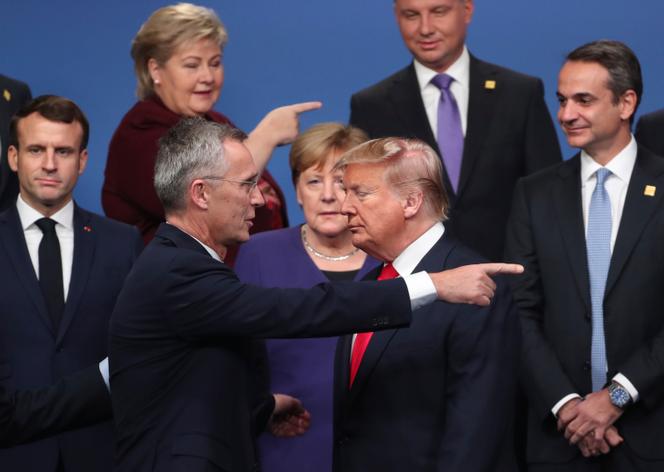


The worst-case scenario is never the most likely, but with the possibility of Trump's return to the White House, Europeans are beginning to seriously worry. By suggesting in a campaign speech on Saturday, February 10, that the United States might not intervene in the event of a Russian attack on members of the North Atlantic Treaty Organization (NATO) who do not contribute enough to the Alliance, the former American president "is undermining the heart and soul of the Alliance, its solidarity clause," said a European ambassador to NATO, still stunned by Trump's comments.
"Any relativization of NATO's guarantee of assistance is irresponsible and dangerous. It is solely in Russia's interests. Nobody should play around or trade with Europe's security," Olaf Scholz stated on Monday in Berlin, while Donald Tusk, his Polish counterpart, stressed that it was necessary to focus on full cooperation with the United States, while investing more in the security of Europe.
As the military organization celebrates its 75th anniversary in July in Washington, could Europe ensure its own defense in the event of a US withdrawal? "It would be the end of NATO, plain and simple," one diplomat said. On their own, European countries would have neither the means, nor the logistics or the equipment to maintain a "credible deterrence and defense posture" against Russia.
"Today, the essential contribution of the United States to the security of Europe is no longer measured in the number of soldiers present on the continent and their heavy equipment, as was the case during the Cold War," said Camille Grand of the European Council on Foreign Relations (ECFR). "It is now intelligence, reconnaissance and surveillance, strategic air transport, in-flight refueling, deep strike capabilities, anti-aircraft defense, and space-based observation and communication." Despite the launch of programs to meet these identified needs, Europeans are still unprepared, for the time being.
"From an operational point of view, these [European] shortcomings have reinforced Europe's dependence on Washington, even for basic military tasks and operations that Europeans should aspire to conduct independently," researchers Max Bergmann and Otto Svendsen noted in a recent report by the Centre for Strategic and International Studies (CSIS) on the transformation of European defense.
The United States offers two other assets. First of all, its nuclear umbrella. Even if the debate on an extension of the French nuclear deterrent to the entire continent has recently been revived, "France would not have the capacity to replace the United States, to equip allied aircraft with French bombs," said Grand. "Not to mention that the size of the French arsenal doesn't compare to that of the United States."
You have 50% of this article left to read. The rest is for subscribers only.
